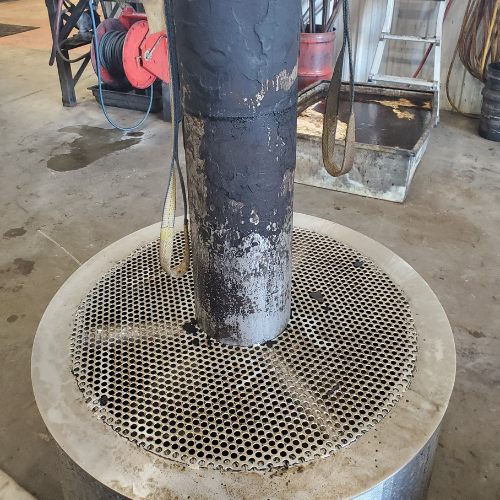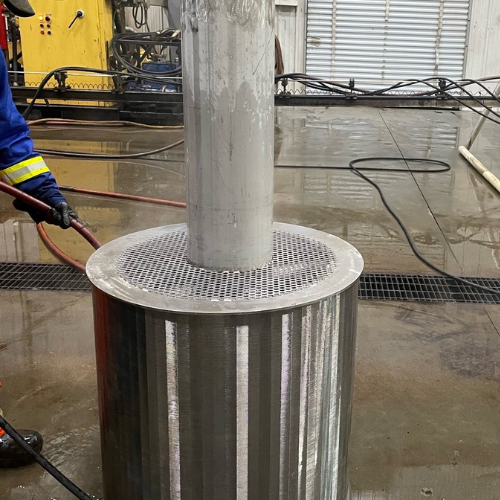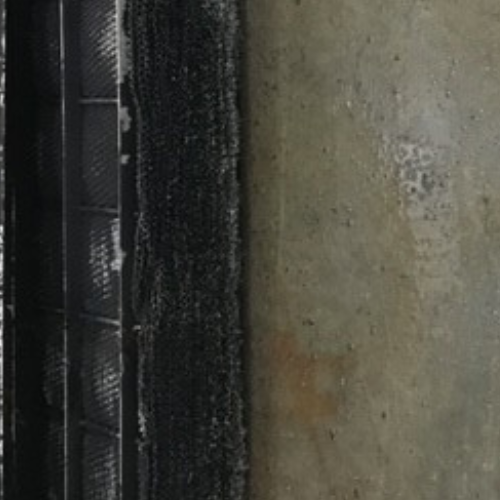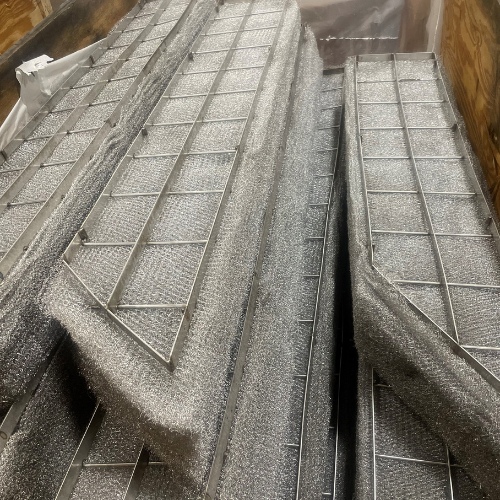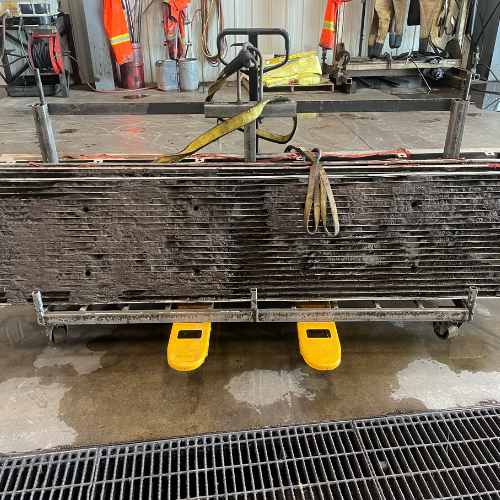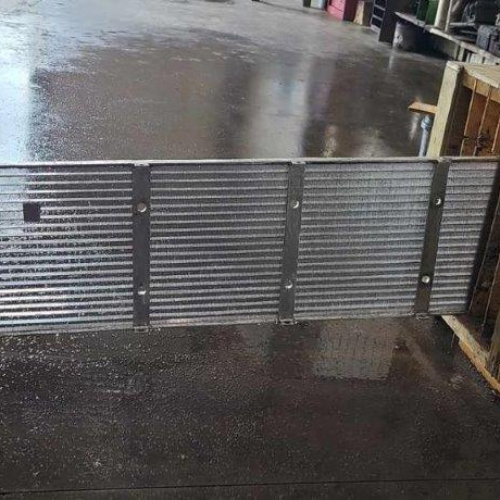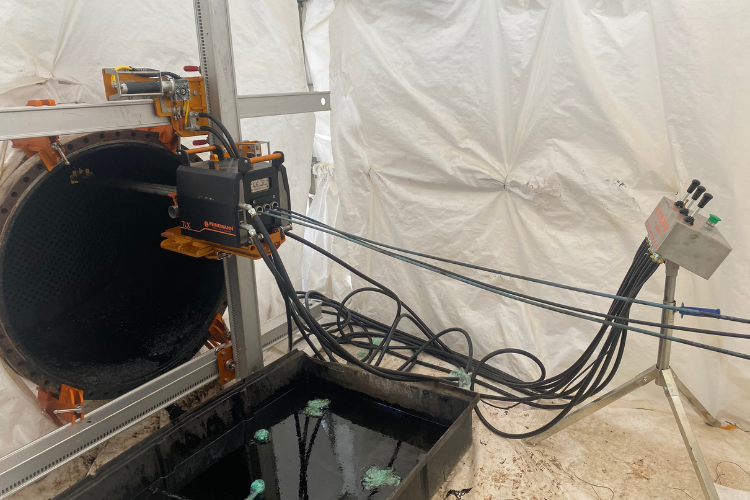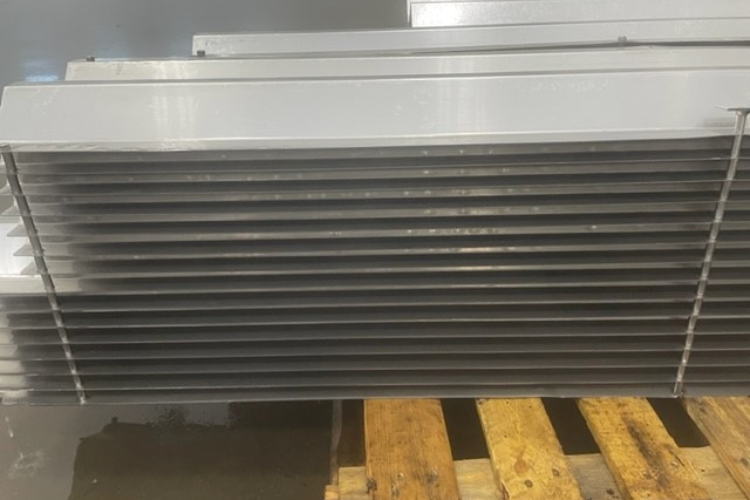Ultrasonic Cleaning Technology
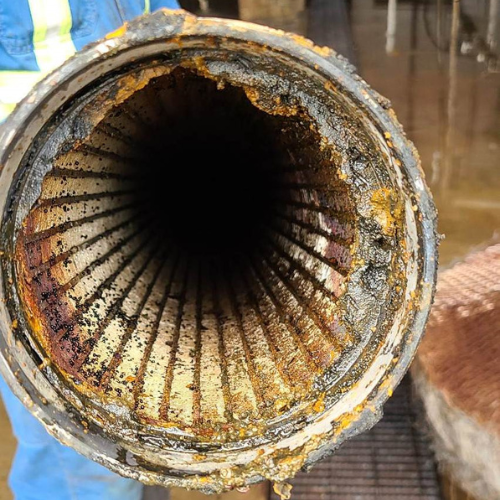
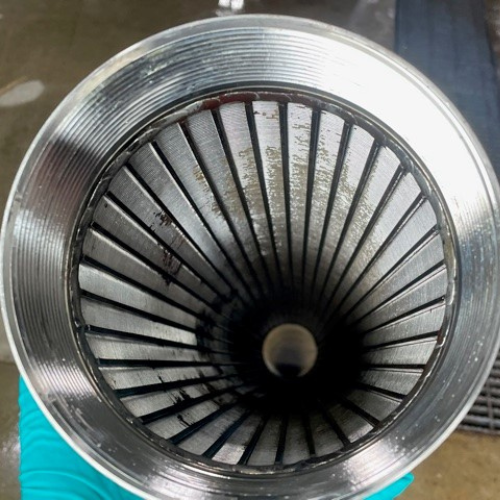
Ultrasonic cleaning particularly with thickness mode ultrasonic transducers provides a much more efficient way to clean heat exchangers. Sound wave implosions, called cavitation separates the contaminant from the surface without damaging a component. Warco Industrial expertly applies patented technology to achieve unparalleled results.
- Effectively removes all forms of hydrocarbon contamination and refinery-grade by-products compared to conventional cleaning processes.
- Cleans components and equipment once deemed unrestorable.
- Extending exchanger service and reducing cleaning cycles. Cleaner surfaces + Increased flow rates = Greater utilization.
- Ultrasonic cleaning reduces risk of injury to personnel and equipment compared to high pressure cleaning method alone.
- Superior cleaning efficiency of ultrasonics increases a facility’s uptime and reduces the total cost of ownership.
- Our process and technology have proven to increase flowrates, reduce risk and harm to personnel, and eliminate environmental liability to our customers.
High Pressure Industrial Cleaning
- When cleaning heat exchangers and other process equipment, it is important to remove all deposits and sediment, restoring assets to as close to like new condition as possible. Failure to remove all fouling will not deliver the benefits of this effort reducing the return on investment. Warco Industrial has the right people, processes, and tools to execute high pressure cleaning, whether it is on-site or off-site at our purpose-built facility. Our high-pressure operators receive industry recognized training and meet the requirement of Water Jet Technology Association (WJTA)
High Pressure Services
- Heat exchanger tube cleaning
- Heat exchanger shell cleaning
- Line and drain cleaning
- Flex lancing, as well as ridged lancing for cleaning fixed exchangers,
- Aerial cooler cleaning
- Evaporators
- Drill pipe cleaning
- Downhole screen cleaning
- Our portable self-contained high-pressure units supply 10,000 psi to 40,000 psi at various GPM
Our Work
Before & After
